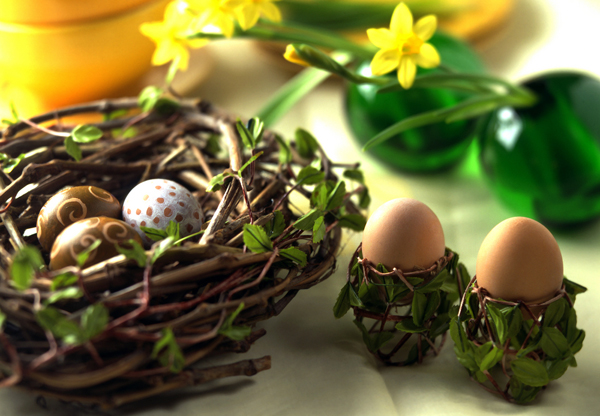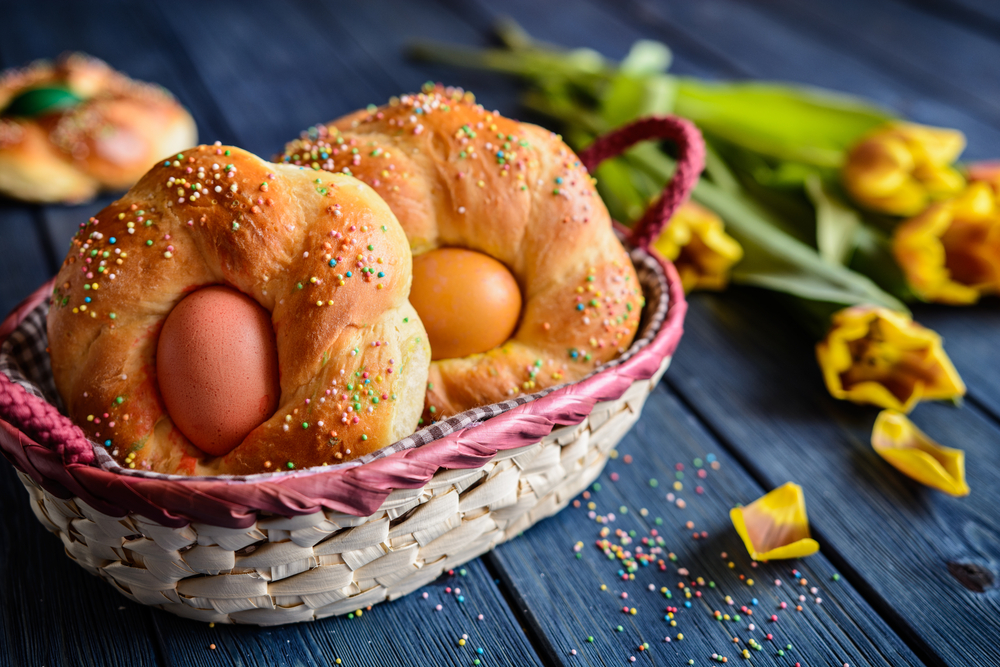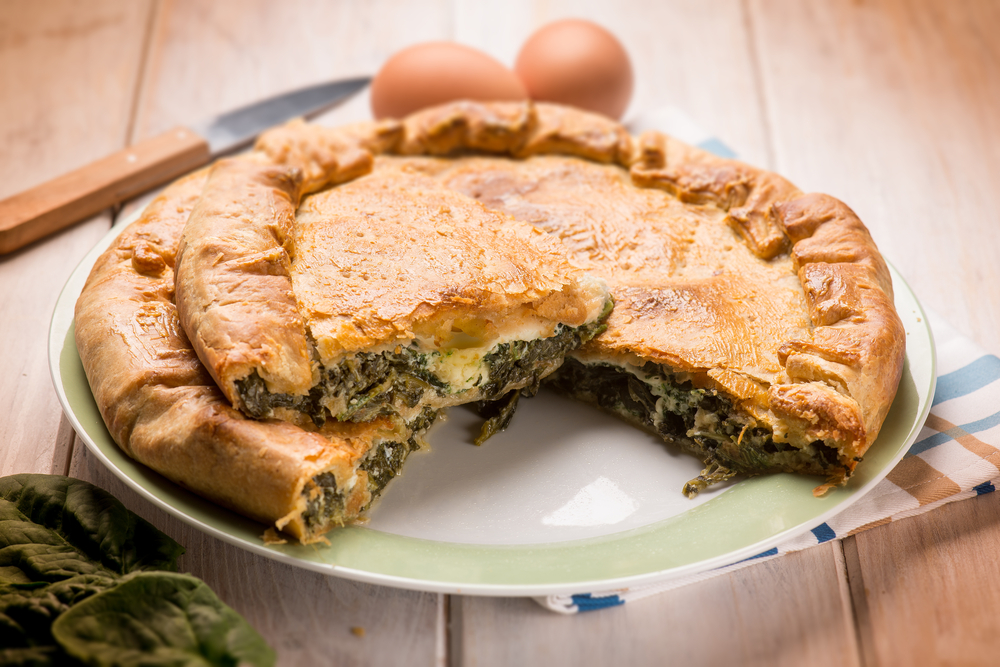
Easter in Italy is a holiday with a Christian headquarters, which begins on palm Sunday and culminates the following week on Easter Sunday. Although Holy Week is important, it is Easter Sunday when the real holidays begin to celebrate the resurrection of Christ. Easter week or Holy Week is celebrated in many different ways in Italy, reflecting the regional differences from religion, from the peasant tradition and even from pagan influences. Easter Sunday often begins with the morning mass, and then most of the day is spent banqueting with family and friends.
After a long period of Lenten gloomy which consists of 40 days of fasting and prayers, everyone is looking forward to traditional vacation dishes that have enjoyed Easter Sunday. Although fasting is not observed as strictly as once, an effort is often made during Lent to reduce meat, eggs, cheese and desserts. For this reason, on Easter Sunday’s Sunday commonly involves rich foods that had been eliminated during the Lenten period.
I have always known that Easter was a “mobile party” and that its date changed every year, but I was very interested in learning how the date was chosen every year. It turned out to be quite complicated and you can know more Here If you are interested. Basically, the short response is that Easter Sunday is the date of the annual celebration of Christ’s resurrection. The purpose of the Easter meetings method is to maintain, for every Easter Sunday, the same season of the year and the same relationship with the previous Astronomical Full Moon that occurred at the time of its resurrection in 30 SUERSTER Sunday, from 326 AD
Although the Easter table can vary considerably from a region to region in Italy, there are some basic elements that are commonly found everywhere. The eggs are considered a symbol or a renewal and a life and have considerably on the dishes of the day, in both soups such as the Easter broth, an Easter soup based on egg thickened broth and in many bread, both sweet and salty. Lamb is the symbol of birth and the shepherd, and both the lamb and the child are commonly found on the Easter menus, usually roasted or grilled to a spit. Other symbols that can be brought to the Easter party are the cross that symbolizes the resurrection in which some bread and the dove are shaped and the dove that symbolizes the peace which is the shape of the famous Easter sweet bread that Columba Pasquale is modeled. Many other dishes that are commonly found on Italian tables every Easter are seasonal specialties that highlight the best fresh products of the season such as artichokes, asparagus, peas and broad beans that overflow the local market in all their glory.

Each region seems to have its own particular version of the Easter cake, made with eggs, which reflect fertility and cheese, and my version of Pasqualina cake is similar to the one you would find in Liguria. Pasqualina cake, is another rich cake that contains ricotta, eggs and a selection of meat and cold cheeses. In Campania, the specialty is called rustic pizza and Umbria, Easter cake. These cakes or cake often contain vegetables, ricotta and other vegetables. Most Italian families will also create a series of traditional desserts every Easter season, including the popular sweet bread that is found throughout Italy every year. Some of these bread includes puppets with eggs that are doll -shaped bread made for children, and Columba, a sweet dove -shaped bread similar to the paneton.

Although the chocolate bunnies are not typical, throughout Italy the windows are full of beautifully wrapped chocolate eggs that are administered as gifts every Easter. They can vary from very small size, to huge and heavy, but generally they all contain a small gift or a surprise. The desserts for Easter can also vary from a region to region, but often also contain ricotta, such as the famous Neapolitan pastiera. This sweet cheese cake is made with cooked wheat and is flavored with lemon or orange. Other cheesecakes or rich cakes and ricotta -based sweets are popular in many regions.
Easter Monday is known as Easter Monday, or Little Easter, and is also a holiday celebrated with the family that brings the Easter season eventually. Often Easter leftovers are appreciated in a more informal environment or everyone heads out to enjoy the heat of spring and picnics with family and friends.
Take a look at some of my favorite Easter recipes!
Deborah Mele

